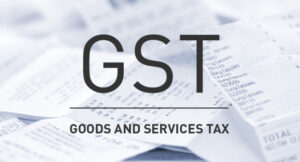A Guide To Singapore Goods And Services Tax (GST)
A Guide To Singapore Goods And Services Tax (GST)

Goods and Services Tax (GST) is a consumption tax broadly imposed on the supply of goods and services and importing of goods into Singapore. In other countries, GST is can also be known as Value Added Tax (VAT).
There are, however, GST exemptions to the provision of most financial services, the supply of digital payment tokens, the sale and lease of residential properties and the importation and local supply of investment precious metals.
Goods that will be exported and international services are zero-rated.
Who Needs To Register For GST?

As of the time of writing this article, GST is taxed at 7%. If your company is GST registered, you are required to charge an additional 7% GST on whatever is your selling price. The GST collected will be paid to the Inland Revenue Authority Of Singapore (IRAS) on a quarterly (calendar) basis whenever your company is doing GST filing.
Your company will be required to register for GST if:
- At the end of any calendar year, your taxable turnover is exceeding S$1 million, or
- You are reasonably expecting your taxable turnover to be more than S$1 million in the next 12 months.
Voluntary GST Registration

There will be times when a business is not required for GST registration, and yet wish to do so voluntarily. Provided that the business satisfies any of the following:
- Your business makes taxable products or supplies
- Your business produces only out of scope supplies. Out of scope supplies mainly refer to sales of goods that did not enter Singapore and goods in transit
- Your business makes exempt supplies of financial services that are also international
- Your business procures services from overseas service providers and you would not be entitled to full input tax credit even if you are GST registered
You may register for GST voluntarily even if you have not begun operations. But you will need to satisfy IRAS that you have firm intentions to carry out any of the above.
Benefits and Drawbacks of GST Registration

The biggest benefit of being GST registered will be your business’s ability to reclaim the GST incurred on your purchases (e.g. costs of goods). However, there are also conditions attached to being a GST registered business that you should consider:
- You are obligated to remain GST registered for a minimum of 2 years
- You must file GST returns punctually, failure to do so will have financial penalties and imprisonment, if serious enough
- Keep proper records for a minimum of 5 years
- If your suppliers are not GST registered, you will not be able to claim any GST
- You must charge your customers with GST. But if your customers are not GST registered, this will make your prices unattractive
- Exporting of goods or provision of services to overseas customers will not be GST chargeable
- It is a criminal offence if you are found liable for collecting GST wrongfully
Our team of accounting specialists are here to assist with your GST registration and filing of GST. Contact us today to find out more!
Download the Telegram app and follow us for the latest updates: https://t.me/sgcompanyservices
